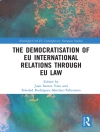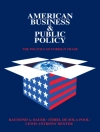Fourteen Quebec federalists dare to re-imagine the province and its defining role within a stronger Canada
Quebecers have been debating their future relative to Canada since before Confederation, though the discussions have been most heated during the past four decades. In this time the debate has gone around in circles. Now, instead of presenting the often-repeated theme of Quebecois as constantly victimized by Canada, 14 Quebec personalities come together to propose a new vision which affirms Quebec’s autonomy and includes it in building a strong, federal Canada.
Eschewing traditional arguments which they claim prevent modern Quebec from advancing, lead to sterile debates, allow Quebecers to shirk responsibility and feed their victim complex, the contributors to this volume draw on their varied professional backgrounds as politicians, militants, intellectuals to invite Quebecers (and other Canadians) to rediscover the extraordinary potential of a well-crafted and properly realized federalism.
Among the arguments, former provincial justice minister Martin Cauchon analyzes the evolution of the Constitution, discusses how Quebecois have used it as a tool to feed political debate and makes the argument that Quebec should acknowledge that the document reflects diversity and sign it, the sooner the better. Law professor Jean Leclair refutes the claim that nationality is exclusive, urging Quebecois to consider themselves both Quebecois and Canadian. UNESCO ambassador Marie Bernard-Meunier critiques the existing Canadian federal structure which she claims denies the provinces an institutionalized role at that level and suggests that an elected Senate and a commitment to unity might solve the problem.
Although it was largely ignored by the French Canadian media when it was first published in French in 2007, The Reconquest of Canada is a breath of fresh air in the ongoing debate regarding Quebec’s position relative to Canada. In this important book, the authors deliver a strong message that federalism provides Quebecers with the opportunity not only to find autonomy but to participate in the building of a united Canada. It is a clear, conciliatory treatise that paves the way for fresh voices and constructive discussion about the future of Canadian politics.












